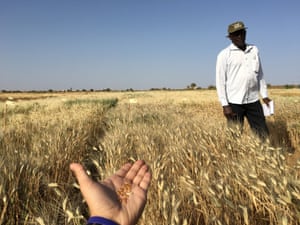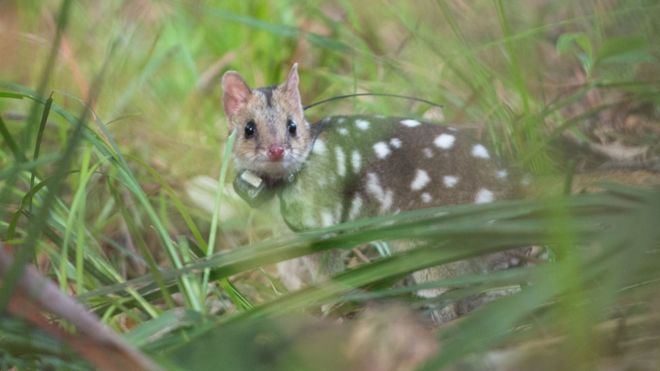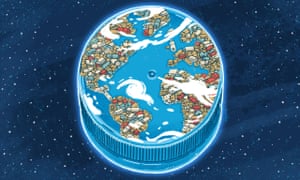“Wheat in heat: the ‘crazy idea’ that could combat food insecurity”

Following four years of trials, which saw thousands of wheat varieties tested in the unforgiving sub-Saharan heat, scientists have successfully turned what was first thought of as a “crazy idea” into a vital new food crop. With more than 1 million smallholders living along the Senegal River basin, which also runs through Mali and Mauritania, it was an important strategic area to trial the wheat.
“Eastern quoll reintroduced to mainland Australia”

http://www.bbc.co.uk/news/world-australia-43411212?mc_cid=bb8cd9dde5&mc_eid=eaaa9fef29
A species of marsupial, the eastern quoll, has returned to the wild in mainland Australia for the first time in about half a century.
“The plastics crisis is more urgent than you know. Recycling bottles won’t fix it”

A deposit scheme for bottles won’t make a scrap of difference. This stuff is in our food, our clothes – and in us.
“Trump told Stormy Daniels he wants all sharks to die. Here’s why that’s a bad idea.”

https://qz.com/1237378/trump-told-stormy-daniels-he-wants-all-sharks-to-die/
Most animals in marine food webs have two main roles: the eater and the eaten. Not so for the large sharks that Trump reportedly reviles. These powerful creatures eat other animals, but hardly anything eats them. Known as apex predators, sharks sit atop the food web, shaping the structure and interactions of marine communities by both feasting smaller animals and frightening them into behaving a certain way. Kill off apex predators, and their erstwhile prey explodes in number—and, consequently, the smaller animals and plants that the prey eats disappear.
“We underestimated the size of the Great Pacific Garbage Patch—by 16 times”

https://qz.com/1234953/we-underestimated-the-size-of-the-great-pacific-garbage-patch-by-16-times/
Less than a year ago, the scientific community thought the Great Pacific Garbage Patch was about the size of France. As tends to be the case with bad news about plastic pollution, the reality is worse than we thought. The massive floating agglomeration of plastic debris between California and Hawaii is actually the size of three Frances. Put another way, it’s twice the size of Texas.
“The WWF warns the Amazon could lose half its wildlife by the end of the century”

The Amazon, the single largest tropical rainforest and home to 10% of the world’s known species, could lose half of its plants and animals by the end of the century as global warming ravages the planet—and that loss of biodiversity is just a snapshot of what’s happening to the world’s forests, wetlands, and seas.
“‘Catastrophe’ as France’s bird population collapses due to pesticides”

Bird populations across the French countryside have fallen by a third over the last decade and a half, researchers have said.
“World’s Last Male Northern White Rhino Dies”
The world’s last male northern white rhino, Sudan, has died after “age-related complications,” researchers announced Tuesday, saying he “stole the heart of many with his dignity and strength.
“Mumbai’s 41 leopards may be protecting locals from thousands of rabid stray dogs”

Leopards are often thought of as a threat to humans, but rather than being a problem in Mumbai, they may actually be helping their human neighbours—even saving their lives—as we argue in our paper published today in Frontiers in Ecology and the Environment.
“Swiss residents are wrapping glaciers in blankets to keep them from melting”

Every summer for the last eight years, people who live in the Swiss Alps have been wrapping a beloved glacier in blankets.

Recent Comments